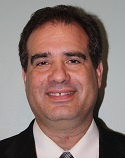
|
October 2019 |
[an error occurred while processing this directive] |
| |

EMAIL
INTERVIEW
– Mark Pipher and Ken Sinclair
| Articles |
| Interviews |
| Releases |
| New Products |
| Reviews |
| [an error occurred while processing this directive] |
| Editorial |
| Events |
| Sponsors |
| Site Search |
| Newsletters |
| [an error occurred while processing this directive] |
| Archives |
| Past Issues |
| Home |
| Editors |
| eDucation |
| [an error occurred while processing this directive] |
| Training |
| Links |
| Software |
| Subscribe |
| [an error occurred while processing this directive] |
Sinclair:
Is the New York City Local Law 97 (Climate Mobilization Act) going to
change the way property owners think about and address energy use?
Pipher: New York City is making a statement to
property owners that Local Law 97 is not just another funded project
that gives people weak incentives to make a change. This new
legislation comes with very stringent requirements that will accumulate
hefty annual fines for any properties that do not comply, making it a
program with teeth. Local Law 97 will make non-compliance more costly
than compliance, which makes it an opportune moment for property
managers to reconsider how they’re managing and controlling energy use
from their critical assets.
Sinclair:
Do you think that NYC will see a significant impact by setting these
goals and penalties?
Pipher: There are plenty of programs out there that
give incentives to people to make a change and correct issues. Most
local utility companies are glad to get help with incentives; however,
this will not help achieve a wider commitment in carbon reduction as
facilities must be willing to take on the reporting and paperwork to
apply for these incentives. As a result, incentives more of a
nice-to-have as opposed to a need-to-have from facility managers and
therefore, not everyone will jump on board. By mandating the reduction
of greenhouse gas emissions and enforcing steep fines for
non-compliance, the playing field will be levelled and everyone who is
already significantly contributing to NYC’s greenhouse gas emissions
will need to be involved in driving the reductions that the city wants
to see.
Sinclair:
What is the best way for property owners to prepare themselves for this
new law?
Pipher: Technology is the best approach.
Monitoring-Based Commissioning is the latest in proven technology that
makes it possible for building managers to financially achieve these
goals in time. In most facilities, there are a number of systems and
pieces of equipment where minor adjustments or proactive maintenance
can provide tremendous savings in energy and costs – it’s just about
finding what needs support and where.
To identify and provide actionable feedback for facility
management teams, these systems use advanced analytics to not just meet
Local Law 97’s requirements below, but also maximize your savings for
years to come:
Sinclair:
Are there any other reasons to start now?
Pipher: There are plenty of reasons to start now.
Saving money on energy now is what this technology promises. In as
little as 30 days, a cost-effective, secure and scalable digital
solution can provide a return on investment with actionable analytics.
Fault detection analytics, which are advanced detection algorithms that
find equipment optimization enhancements, preventive maintenance
actions, and energy savings enable the teams to get to resolution
quicker.
Taking advantage of this new technology and current utility incentives
that not only help support your actions but also drive long term
savings year after year. Monitoring-based Commissioning is saving 10%
in utilities today and driving operational efficiency up 20%.
Sinclair:
Are other states looking at NYC as the founding model for emission
reduction?
Pipher: While we can’t
say for certain whether or not New York will set a precedent and create
a clear-cut framework that other states, countries, etc. can follow for
worldwide emission reduction, we do know that if any state is not
mandating carbon reduction now, then they will be in the next few
years. States like California, for instance, have started
to stress the importance of a more sustainable building environment by
achieving a net reduction in carbon emissions, all without hindering
its economy.
NYC Local Law is a good example to follow and track to see how property
owners step up and use technology like Monitoring-Based commissioning
to their advantage and help our planet become as sustainable and
environmentally friendly for all next generations to come.
Sinclair:
Are any other parts of the world doing similar programs?
Pipher: Although they don’t impose the potential
fines and repercussions like Local Law 97’s hefty program, places like
the United Kingdom have similar goals for carbon reduction like
achieving 80% carbon reduction by 2050.
In 2005, there was a key checkpoint established to see if the UK can
achieve its goal of decreasing emissions by 35% at least by 2020. The
technology could play a bigger role now with further technology being
applied to modern facilities such as IoT, cheaper sensor technology,
and advanced analytics.
[an error occurred while processing this directive]
[Click Banner To Learn More]
[Home Page] [The Automator] [About] [Subscribe ] [Contact Us]